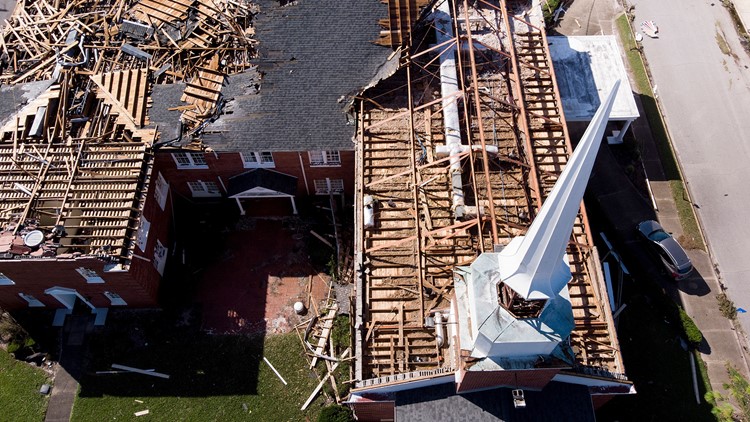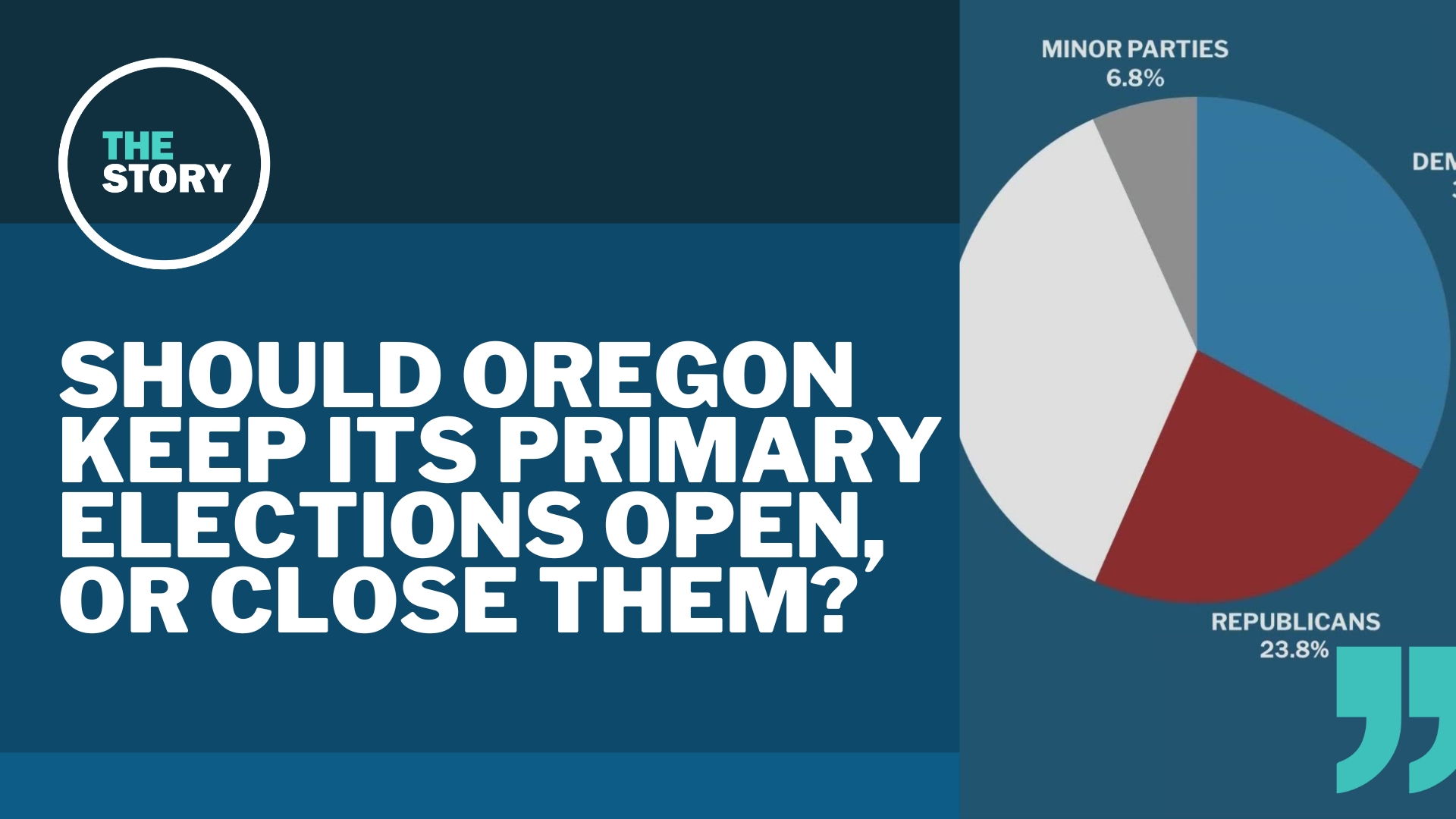With thousands of homes leveled, power out, and cell service spotty in the aftermath of battering hurricanes, voting in the midterm elections may be the last thing on residents’ minds in the Southeast United States, and yet voters could play a critical role in key races there – if they turn out.
With elections less than three weeks away, thousands of residents are still struggling to pick up the pieces in parts of Florida, Georgia and the Carolinas. As of Wednesday, more than 55,000 people had contacted FEMA for assistance in the wake of Hurricane Michael, which killed more than two dozen and damaged some 20,000 homes as it cut a devastating swath through the region last week.
Officials in all four states have taken steps to try and accommodate voters and mitigate balloting disruptions, extending registration deadlines or early voting hours, for example.
Whether those measures are successful – along with campaign efforts to get-out-the-vote come what may – could have sizable ramifications, analysts say. Less than three percentage points separate candidates in the races for governor and Senate in Florida and for governor in Georgia, according to RealClearPolitics polling averages.
“It’s a turnout game,” said Jennifer Duffy, senior analyst at the nonpartisan Cook Political Report.
When Superstorm Sandy ravaged the Northeast just days before the election in 2012, then-New Jersey governor Chris Christie used emergency powers to throw out the rules for voting, allowing for widespread absentee, fax and even email voting. The difference this time, election officials say, is there is more time to recover before the election Nov. 6. But it’s still a scramble.
Florida
The county elections office in hard-hit Panama City, Florida, was still without power a full week after Hurricane Michael. But the county's top elections official hopes to stand up a handful of “mega-voting sites” in the coming weeks, possibly at football or baseball fields.
“I only know of two locations right now for sure,” County Supervisor of Elections Mark Andersen said. “The other ones I have to go out and see what’s available. At a minimum we’ll have a tent with air conditioning, and that’s how people will vote in Bay County.”
Voters also have the option of casting ballots by mail, but he said postal delivery is still irregular and many roads still impassable. For anyone wanting to call for more information, he said, phone lines are still down.
The region’s voters skew heavily Republican and could tip the balance in the Senate race between current Republican Gov. Rick Scott and incumbent Democratic Sen. Bill Nelson. They could also swing the governor’s contest between GOP Rep. Ron DeSantis and Democratic Tallahassee Mayor Andrew Gillum.
The state’s last two gubernatorial races were decided by fewer than 66,000 votes. There are roughly 200,000 registered voters in the handful of counties impacted by the hurricane, including 120,000 in Bay County, which includes heavily devastated Mexico Beach in addition to Panama City.
State officials are monitoring their local counterparts closely, with Secretary of State Ken Detzner touring election offices Monday for a firsthand looked at the gargantuan task before them.
“The Department is in regular communication with Supervisor of Elections in affected counties and they are still in the process of assessing potential damage,” Detzner said.
Before the storm struck, he extended the voter registration deadline to the first day after the storm that county elections offices open. But in some hard-hit counties, where everything closed before Michael made landfall, elections offices still haven't reopened.
Georgia
The top elections official in Georgia is also on the ballot for governor.
Republican Secretary of State Brian Kemp is locked in a tight race with Democrat Stacey Abrams – 48 percent to 46 percent in the RealClearPolitics polling average.
Kemp, whose office did not return a message left seeking comment, traveled to several county elections offices to survey the damage after the hurricane swept through the state, touching off tornadoes and causing widespread power outages and wind damage.
Georgia Gov. Nathan Deal extended voter-registration deadlines in four counties and expanded early voting in two. But after surveying the damage, Kemp said he wasn’t sure voting would be top of mind for residents in the region, according to CBS affiliate WTVY.
"I'm not diminishing someone's ability to vote, but I think everyone understands if you don't have a safe environment,” he said. “I mean, this is a catastrophic situation that we're dealing with."
Initial numbers showed that statewide, however, voters turned out in droves to cast early ballots, The Atlanta Journal Constitution reported. On the first day of early voting Monday, some 69,000 people cast ballots, more than triple the number who voted early on the first day in the last midterm elections in 2014, the newspaper reported.
North Carolina
North Carolina suffered a double-whammy in recent weeks, first with Hurricane Florence and then Michael.
Election officials there said they are spending hundreds of thousands of dollars on outreach to remind voters of the options available, including mail-in ballots, early in-person voting and registration that started this week and of course, voting on Election Day.
“We are focusing the effort on residents 18 and older in the 28 counties in eastern North Carolina most affected by Hurricane Florence,” said Patrick Gannon, spokesman for the North Carolina Board of Elections & Ethics Enforcement.
“We also created a special Florence webpage to help voters,” he said.
There is no governor’s race or U.S. Senate contest in the state this year, but there are a couple of tight faceoffs for House seats. Incumbent Republican Rep. Ted Budd holds a narrow lead in polling over Democratic challenger Kathy Manning in the state’s 13th Congressional District, while Democrat Dan McReady is edging out Republican nominee Mark Harris in the Ninth District.
South Carolina
In South Carolina, election officials said they do not expect much impact from the hurricanes’ fallout in the general election, in which the state will elect a governor among other officials.
Though counties have asked what to do in instances in which voters are displaced to other counties, said Chris Whitmire, a spokesman for the State Election Commission. He said such voters can register in their new home or keep their registration and vote in their hometown by absentee ballot.
Two to three polling places have been moved, he said, because of storm damage. In addition, counties are being encouraged to open for additional hours for absentee voting in response to the storm.
“Florence happened well in advance of the election, so I think that offered us some relief,” he said. “That is not to say there are not individuals out there that it has impacted in ways that are just unique to them. But I haven’t seen it on a widespread scale.”
Contributing: James Call and Annie Blanks, Tallahassee Democrat; Tim Smith, The Greenville News; Herb Jackson, The (Bergen County, N.J.) Record, and the Associated Press.



